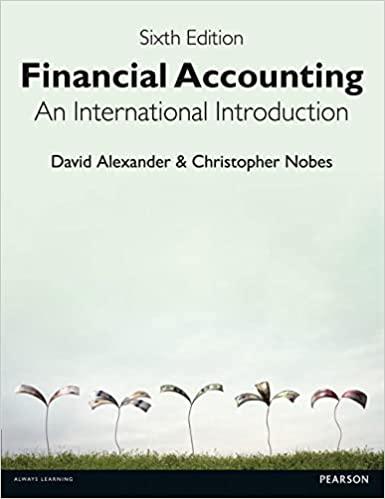Answered step by step
Verified Expert Solution
Question
1 Approved Answer
Free cash flow is the amount of cash that a company has left over after it has paid for all of its expenses. In other
Free cash flow is the amount of cash that a company has left over after it has paid for all of its expenses.
In other words, it is the amount of money that can be reinvested in new project or paid out to investors
without having to expand operations or running down its existing operations. Discretionary income is
equivalent for individuals. Discretionary income is defined as income available for spending after
subtracting taxes and essential expenses to maintain an individuals current standard of living.
In this assignment, you will be asked to think through your personal spending and how you might
construct a budget after you graduate. You will need to consider both required expenses eg taxes, loans,
housing costs, etc. savings, and discretionary spending.
According to the US Department of Education, the average salary of a Stillman School of Business
finance major three years after graduation was about $
Assume that is the salary you will make
after graduation. Answer the following questions based on the lifestyle youd like to live after graduation.
How much will you pay for health care each year
How much do you plan to save for retirement each year
What is your taxable income for federal income taxes, NJ state income taxes, and FICA?
What is your total annual federal income tax, NJ state income tax, and FICA taxes? What is your
average tax rate combined for all three taxes
What will be your monthly takehome pay after health care, retirement savings, and taxes
List and estimate your essential expenses per month. These are expenses that are necessary for
living and to pay off debts. Examples include rent, student or car loan payments, car insurance,
utilities, groceries, etc.
List and estimate your discretionary purchases per month. These purchases are expenses you
dont need to survive but bring you joy. Examples include gym fees, salons, movies, streaming
services, video games, vacations, etc.
List and estimate the money you plan to save for large future purchases. This savings can be for
large purchase you expect to make at some point in the future. Examples include saving for a
down payment on a house, buying a car, saving for graduate school, etc How much will you pay for health care each year
How much do you plan to save for retirement each year
What is your taxable income for federal income taxes, NJ state income taxes, and FICA?
What is your total annual federal income tax, NJ state income tax, and FICA taxes? What is your
average tax rate combined for all three taxes
What will be your monthly takehome pay after health care, retirement savings, and taxes
List and estimate your essential expenses per month. These are expenses that are necessary for
living and to pay off debts. Examples include rent, student or car loan payments, car insurance,
utilities, groceries, etc.
List and estimate your discretionary purchases per month. These purchases are expenses you
dont need to survive but bring you joy. Examples include gym fees, salons, movies, streaming
services, video games, vacations, etc.
List and estimate the money you plan to save for large future purchases. This savings can be for
large purchase you expect to make at some point in the future. Examples include saving for a
down payment on a house, buying a car, saving for graduate school, etc PLEASE ANSWER ALL QUESTIONS I WILL UPVOTE

Step by Step Solution
There are 3 Steps involved in it
Step: 1

Get Instant Access to Expert-Tailored Solutions
See step-by-step solutions with expert insights and AI powered tools for academic success
Step: 2

Step: 3

Ace Your Homework with AI
Get the answers you need in no time with our AI-driven, step-by-step assistance
Get Started


